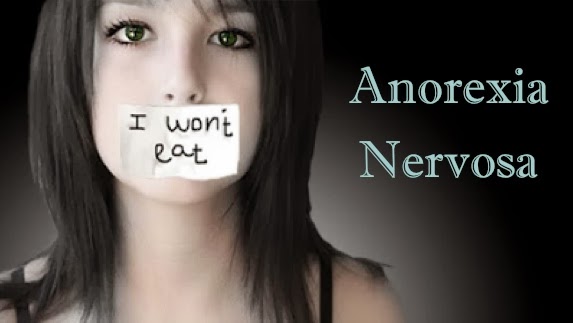One of the biggest problems with anorexia nervosa these days is the way in which so many individuals who are excessively thin or are fearful of gaining weight are pigeonholed as having eating disorders. In reality however, this is rarely the case, but it is exactly these kinds of widespread assumptions and false labelling that can often make it difficult for those with genuine eating disorders to acknowledge their problems and seek professional assistance.
What differentiates anorexia nervosa from non-problematic cases is the way in which the individual in question may have absolutely no control whatsoever over their eating habits and lifestyle in general. Rather than simply wishing to remain thin, those living with this particular eating disorder have an absolutely crippling fear of gaining weight and often see themselves entirely different than how they look in reality. As such, they will continue to deny themselves food to such an extent where the toll taken on their health and wellbeing can be nothing short of catastrophic.

Nevertheless, knowing when to speak to the very best counsellor Canterbury has to offer can be difficult – just as it can be difficult to identify when a friend or a family member has a genuine eating disorder. There are various signs and symptoms of anorexia nervosa, but in every instance the same symptoms could be attributed to a wide variety of other conditions.
A few examples of the most common signs and symptoms include:
- Excessive and on-going weight loss resulting from insufficient calorie consumption
- Any indication that the individual in question believe they are fat when they are in fact clearly underweight
- An unhealthy obsession with body image, dieting and exercise
- Obsessively counting calories and scrutinising absolutely everything that is consumed beyond reason
- Unexplained mood swings and anxiety
- Dental decay and dry skin
- Changes in menstrual cycles of any kind
- Problems with the digestive system
- Hyperactivity and the inability to sleep
As already mentioned, none of the symptoms above alone or in conjunction with one another can be used to comprehensively diagnose a case of anorexia nervosa, without the unique specifics of the case in question being investigated. This is precisely why it is of the utmost importance to bring the matter to the attention of the professionals as early as possible, in order to minimise the likelihood of long-term damage.
Behavioural Signs and Symptoms
Above and beyond the physical signs and symptoms of anorexia, it can often be a variety of behavioural traits that can more accurately identify an eating disorder. There are certain examples that are common to the vast majority of eating disorders across the board, which when detected in the case of a family member or friend should not be overlooked. It may be a difficult subject to address, but it absolutely must be addressed for the sake of their health and wellbeing.
Just a few examples of the kinds of behavioural signs and symptoms of a variety of eating disorders include:
- Reluctance to eat at the same time as anyone else or in front of other people. More often than not, those affected will come up with a variety of excuses to ensure that they do not have to eat in the presence of other people.
- Another common indicator of an eating disorder is when it becomes apparent that an individual is lying about what they have eaten and when. This usually combines with the above point – they may insist that they do not want to eat with other people as they have already eaten quite recently, when it is apparent that this is not in fact true.
- A sudden aversion to foods that the individual used to like or adopting radical new eating habits which exclude any foods or food groups may also be indicative of an eating disorder. It is common for those with anorexia to completely cast out certain foods and entire food groups.
- Unexplained depression, irritability and mood swings can also be indicative of eating disorders – especially when combined with the other signs and symptoms listed here.
- Reluctance to discuss the subject also tends to be a strong indicator of an eating disorder. If the individual in question is not suffering from an eating disorder and has nothing to hide, it should be a subject that can be approached and discussed openly without anger or embarrassment.
In terms of when the time comes to seek professional help, if you have even the slightest semblance of doubt or concern, this is the time to arrange a consultation. Or in the case of a family member you suspect may have an eating disorder, it is crucial that the subject is brought up as early as possible.




